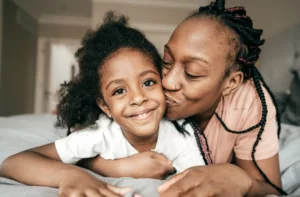The Importance of Mental Health in BIPOC Communities
The Importance of Mental Health in BIPOC Communities

Mental health is a crucial aspect of overall well-being but remains a stigmatized and often overlooked issue, particularly within BIPOC (Black, Indigenous, and People of Color) communities. The challenges faced by BIPOC individuals in seeking and receiving adequate mental health care are influenced by systemic inequalities, cultural stigmas, and socioeconomic barriers. Addressing these challenges is essential for both individual well-being and the health of entire communities.
In this article, we will explore the mental health challenges encountered by BIPOC communities and introduce a new, free online tool designed specifically to support BIPOC caregivers of children with mental health issues. This tool aims to provide the necessary resources and community support to navigate these challenges effectively.
Mental Health Challenges in BIPOC Communities
Systemic Inequality and Access to Care
 One of the most significant barriers to mental health care for BIPOC communities is systemic inequality. According to the American Psychiatric Association, BIPOC individuals are less likely to receive mental health care compared to their white counterparts. When they do receive care, it is often of lower quality due to a lack of culturally competent providers who understand the unique cultural and societal factors affecting BIPOC mental health.
One of the most significant barriers to mental health care for BIPOC communities is systemic inequality. According to the American Psychiatric Association, BIPOC individuals are less likely to receive mental health care compared to their white counterparts. When they do receive care, it is often of lower quality due to a lack of culturally competent providers who understand the unique cultural and societal factors affecting BIPOC mental health.
Socioeconomic factors further complicate access to care. Many BIPOC individuals live in areas with limited access to mental health services. The high cost of care, lack of insurance, and prioritizing basic necessities over health care contribute to disparities in mental health outcomes.
Cultural Stigma and Mistrust of the Healthcare System
The cultural stigma surrounding mental health is prevalent in many BIPOC communities. Mental health issues are often viewed as a sign of weakness or personal failure, leading individuals to avoid seeking help. This stigma is compounded by a historical mistrust of the healthcare system, rooted in past abuses and ongoing discrimination.
For instance, the Tuskegee Syphilis Study has had a lasting impact on the Black community’s trust in the healthcare system. Such historical events contribute to a deep-seated reluctance to engage with mental health services, even when they are desperately needed.
Racism and Discrimination
Racism and discrimination are pervasive stressors contributing to mental health issues within BIPOC communities. The chronic stress of facing racial prejudice and discrimination can lead to conditions such as anxiety, depression, and PTSD. This phenomenon, known as racial trauma, is a significant yet under-recognized factor in the mental health struggles of BIPOC individuals.
Additionally, microaggressions—subtle, often unintentional expressions of prejudice—can accumulate over time, exacerbating feelings of isolation, stress, and worthlessness. Addressing the mental health impact of racism is crucial for effective intervention.
Lack of Culturally Competent Care
 Even when BIPOC individuals seek mental health care, they often encounter providers who lack the cultural competence to address their specific needs. Culturally competent care involves understanding the cultural contexts influencing a patient’s mental health and integrating this understanding into treatment.
Even when BIPOC individuals seek mental health care, they often encounter providers who lack the cultural competence to address their specific needs. Culturally competent care involves understanding the cultural contexts influencing a patient’s mental health and integrating this understanding into treatment.
Unfortunately, the lack of diversity among mental health professionals means many BIPOC individuals do not receive care sensitive to their cultural backgrounds, leading to misdiagnosis, ineffective treatment, and dissatisfaction with the mental health care system.
Introducing Our Free Online Tool for BIPOC Caregivers
Recognizing these challenges, we have developed a free online tool specifically designed to support BIPOC caregivers of children with mental health issues. This tool offers a comprehensive approach to addressing the unique mental health challenges faced by BIPOC communities.
Features of the Online Tool
- 20 Detailed Lessons: The tool includes 20 lessons covering various topics, from understanding mental health conditions to developing effective coping strategies. Each lesson is tailored to the cultural contexts of BIPOC communities, ensuring relevant and applicable information.
- Insightful Audio Clips: Audio clips featuring experts from BIPOC backgrounds provide insights into the specific challenges BIPOC caregivers face. These clips offer practical advice and emotional support, helping caregivers confidently navigate their children’s mental health journeys.
- Community Support: The tool fosters a sense of community among BIPOC caregivers, allowing them to connect with others who understand their experiences. This support network is invaluable in helping caregivers feel less isolated and more empowered to seek the help they need.
- Culturally Competent Resources: The tool’s resources are designed with cultural competence in mind, ensuring that advice and strategies are effective and respectful of diverse cultural backgrounds.
How the Tool Addresses Key Challenges
- Overcoming Stigma: By offering a safe, anonymous space to learn and connect, the tool helps break down the stigma surrounding mental health in BIPOC communities.
- Improving Access to Care: The tool is available online, making it accessible to anyone with an internet connection, regardless of location or socioeconomic status.
- Building Trust: Including BIPOC experts and culturally competent content helps build trust in the mental health resources provided, encouraging more individuals to seek help.
- Reducing the Impact of Racism: The tool acknowledges the mental health impact of racism and provides strategies to cope with racial trauma.
Moving Forward: Empowering BIPOC Mental Health
Addressing the mental health challenges faced by BIPOC communities is a complex and urgent task. Systemic inequalities, cultural stigma, and a lack of culturally competent care create significant barriers to mental health care for BIPOC individuals. However, these challenges can be overcome with the right tools and resources.
Our free online tool is designed to provide BIPOC caregivers with the support and resources needed to care for their children’s mental health effectively. By offering culturally competent care, practical advice, and a supportive community, this tool aims to empower BIPOC families to take control of their mental health and well-being.
Start your journey today by accessing our free online tool: Blueprint for BIPOC Caregivers of Children with Mental Health Issues. Together, we can make a lasting difference in the mental health of BIPOC communities.



